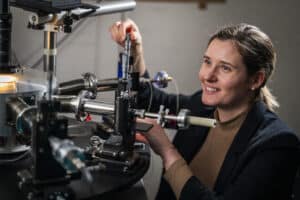Aridhia and EMC Greenplum collaborating on revolutionary chronic disease management solution
Health informatics company Aridhia today announced a partnership with global IT solutions provider EMC Computer System (UK) Ltd to create a new technology platform capable of revolutionising the treatment and management of chronic health conditions such as cancer, diabetes and cardiovascular disease.
Using the EMC Greenplum big data analytics platform, the companies will work together to provide the international healthcare, life and biomedical science markets with services that enable the sophisticated analysis of vast amounts of clinical, patient, imaging and genomic data and provide a comprehensive picture of factors affecting each patient’s treatment and healthcare outcomes.
By delivering the sophisticated IT infrastructure and applications required for the analysis of huge volumes of complex information, Aridhia and EMC will work to enable healthcare providers and researchers to unlock new insights from clinical data and usher in a new age of ‘stratified medicine’, offering improved, personalised healthcare treatments, tailored to the genetics of individual patients.
As chronic diseases such as cancer, diabetes, respiratory and cardiovascular disease become increasingly prevalent worldwide, Aridhia’s CEO and Chairman, Dr David Sibbald, believes healthcare organisations will rely more on real-time data and disease management services to support comprehensive, systematic and personalised patient care:
“Chronic diseases are the leading cause of morbidity and mortality in the world. There is an urgent need to manage these diseases more effectively, which is why we are excited to have the opportunity to join forces with EMC. This partnership will not only allow us to enhance our existing informatics solutions for chronic diseases, but will also deliver the building blocks required for the advancement of preventative care and the development of stratified medicine.
“A person’s genetic profile can have a massive impact on the effectiveness of their treatment plan. Our technology will enable healthcare professionals, for the first time, to truly treat patients as individuals rather than simply as set a set of symptoms.
“By combining our international clinical faculty’s experience and innovations with EMC’s expertise in big data infrastructure and scalability, we are a step closer to our goal of becoming a world leader in the sophisticated analysis of clinical and scientific information required for the personalised, targeted drugs and treatments of the future,” says Dr Sibbald.
Chris Roche, UKI Regional Director of EMC Greenplum, agrees that the new partnership has the potential to produce improvements in the treatment and outcomes of tens of millions of chronic disease sufferers worldwide by replacing current “inadequate” and “wasteful” management systems that are “not always fit for purpose”.
Roche says: “Once chronic disease has taken hold, big data analytics solutions of this type can allow easier identification of the drivers of the condition, to ensure its management is as effective as possible. Current methods of managing chronic illness, with standardised prescriptions and care plans, are not always fit for purpose; proper use of healthcare informatics can minimise the inadequacies or waste that can result from such misallocation of resources.
“With healthcare budgets being squeezed, and chronic disease a growing problem in an aging population across the world, such real-time disease-management techniques will become increasingly important. Applied in this way, the right technology has the potential to assist with the proper targeting of resources, and the effective mitigation of the effects of diabetes, cancer, respiratory and cardiovascular disease worldwide.”
With the prohibitive cost of sequencing an individual’s genome continuing to fall rapidly, stratified medicine is widely predicted to be a huge growth area for healthcare providers over the next decade.










